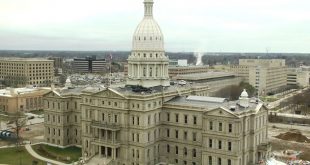A gigantic Chinese real estate developer is fighting for survival after it missed a debt payment earlier this week, sparking fears over what the global financial repercussions could be. Michigan Tech Professor Gary Campbell has spent time in China, even visited one of the country’s famed ghost cities. Whereas the United States tends to stimulate by encouraging lending through loose monetary policy and fiscal stimulus sent directly to consumers, China favors physical investments.
That construction doesn’t always make sense, which is one of the reasons for the current troubles. Campbell says the Chinese Communist Party has the ability to control the situation, it can force its banks to lend and bail out companies like Evergrande.
The path it is taking is more risky, even if it has significant political advantages in the long-term. Given China’s focus on infrastructure, a growth slowdown could play havoc with some commodities, including those mined in the region.
Companies like Cleveland Cliffs are already feeling the pinch.
Another point of concern is for individuals invested in the stock market. If China’s troubles spark a correction in American markets, it is difficult for the Federal Reserve to help. Interest rates are at zero and can’t go lower. Recent monetary stimulus has helped spark inflation that has not been seen in generations. Campbell says the Fed is discussing raising interest rates to give itself room to maneuver going forward.
 Keweenaw Report Your Source for Local News and Sports
Keweenaw Report Your Source for Local News and Sports





